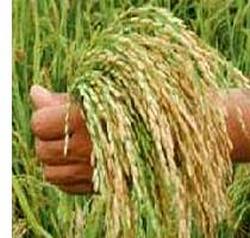WINDMILL COUNTRY: Trade with Cuba could be good for Texas in the future
- Submitted by: admin
- Business and Economy
- Politics and Government
- 05 / 23 / 2010

LUBBOCK — For more than 50 years, the island nation of Cuba has been under a trade embargo which restricted trade with the United States.
A bipartisan bill, H.R. 4645, was introduced in the Congress this year which would lift the travel restrictions and relax financial requirements needed to trade agriculture products.
The legislation, authored by U.S. House Agriculture Committee Chairman Collin Peterson (D-Minn.) and Rep. Jerry Moran
(R-Kansas), is supported by the three Texans on the committee: U.S. Rep. Mike Conaway (R-Midland, Rep. Randy Neugebauer (R-Lubbock), and Rep. Henry Cuellar (D-Laredo).
Toward the end of the seventh in a series of the House Agriculture Committee field hearings on the Texas Tech University campus here last week, Peterson asked the witnesses — those giving testimony about the writing of the 2010 Farm Bill — their
opinion about H.R. 4645.
“Cuba was once the No. 1 export market for U.S. rice before the embargo and we believe it is potentially a 400,000 to 600,000 ton market if normal commercial relations are established,” said Lowell Raun from El Campo, chairman of the Texas Rice Producers Legislative Group.
Raun said rice is planted on about 185,000 acres in Texas, in addition to another 3 million acres in the other five rice growing states, including Arkansas, California, Louisiana, Mississippi and Missouri.
The U.S. rice industry is a multibillion dollar industry that provides jobs and income for not only producers and processors of rice, but for all involved in the value chain.
“The Texas Wheat Producers Association is very supportive of a robust trade agenda including passage of the current pending free trade agreements and more open trade with Cuba,” said David Cleavinger, a wheat, corn, cotton and grain sorghum producer from Wildorado in Deaf Smith County.
Cleavinger said Cuba proves another example of the potential for Congressional action to significantly benefit the Texas economy.
Steve Pringle, legislative director for Waco-based Texas Farm Bureau, said passage of H.R. 4645 could have direct immediate impacts on Texas with some $35 million worth of additional economic activity and more than 300 jobs hanging in the balance.
“We have been working since 1999 to open up trade opportunities in Cuba, when we first went to Cuba to try and reduce trade restrictions and send our Texas products to them, which they greatly need,” said Glen Jones, TFB policy development director.
Looking back, a partial economic embargo was first imposed on Cuba Oct. 19, 1960, by President Dwight Eisenhower that excluded food and medicine.
On Sept. 4, 1961, the U.S. Congress passed the Foreign Assistance Act which prohibited aid to Cuba and also authorized the President to create a “total embargo upon all trade” with Cuba. In Feb. 1962, President John F.
Kennedy broadened the partial trade restrictions first imposed by Eisenhower.
Restrictions were eased somewhat during the George W. Bush administration, but those still require that Texans make use of foreign banks to conduct business with Cuba.
According to a study conducted by the Center for North American Studies which was supported by Texas AgriLife Research, implementing a bill like H.R. 4645, the Travel Restriction Reform and Export Enhancement Act of 2010, would increase Texas agricultural exports to Cuba by $18.4 million annually.
This would nearly double agricultural exports from Texas to Cuba compared to 2009.
“Helping feed Cuba is good for the U.S. economy and for the Cuban people. This bill increases the ability for our farmers to sell their products to Cuba just like they do with our other trading partners,” Peterson said. “U.S. producers are the closest suppliers that can help meet the food and agriculture needs of Cuba.”
Several Texas agricultural goods are used in Cuba, including rice, poultry, wheat, corn and grain sorghum, Pringle said.
Cutting off the food chain to a country’s people because of the politics of its government often ends up starving folks who have no idea why.
In the global market today, other nations step up like Canada, Argentina, Brazil, Vietnam and the European Union and are allowed to build a foothold for goods Texans easily could provide.
Time is critical. The longer it takes to fix the trade situation with Cuba, the more we lose, Pringle said.
By Jerry Lackey
Source: /www.gosanangelo.com/
Comments